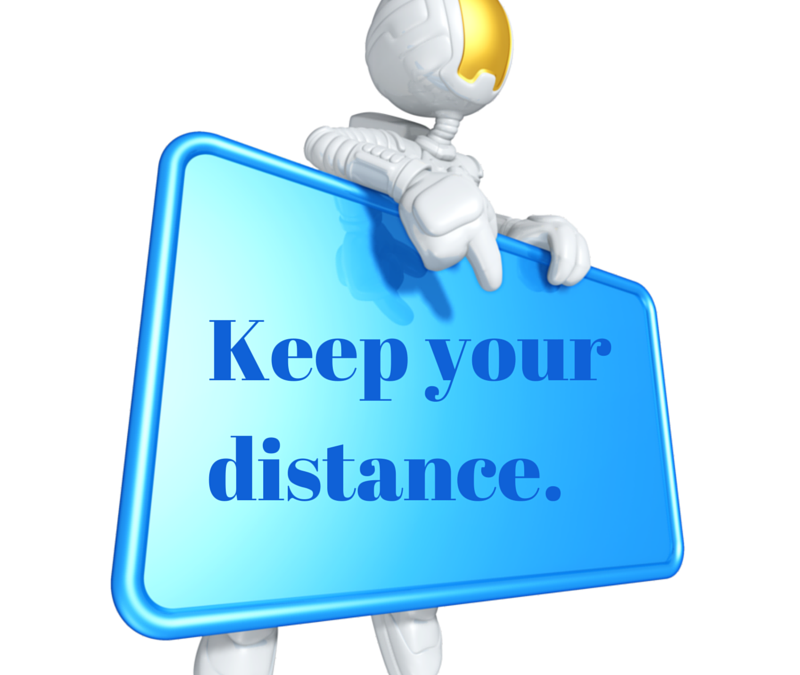
Mental Health
You may have seen this article in the past couple of weeks called ‘Can Family Secrets Make You Sick?’, it seems to be making the rounds on social media. When I first met our behavior specialist, Ken Howard, we touched on this subject. Ken told me that sometimes, when I person is very overweight and is making progress toward his or her weight loss goals, they will hit a point at which they stop progressing and start gaining the weight back quickly. These people tend to have experienced abuse in their past and are often subconsciously using their excess weight as a shield to protect them from additional painful or frightening circumstances.
Whoever said that children are resilient got it wrong. Kids will learn to hide their pain but it doesn’t really go away until it’s addressed and can surface later in life through illness, addiction, and unhealthy relationship patterns.
If you’re feeling stuck in any area of your life, consider finding a good therapist or a support group to help you make your minutes matter.
Mental Health
In this video, our behavior specialist Ken Howard illustrates the six steps of healthy conflict. If you ever struggle with combat or lack of intimacy in your relationships you know the how bad it feels, but Ken shares how damaging it really is when ‘winning’ is the goal of either party involved in a disagreement.
The video is 10:41 and worth every second.

Mental Health, Quality of Life
I’m willing to bet that just about everyone knows at least one person who constantly posts photos of their meals, weight loss progress, and let’s don’t forget those check-in’s at the gym. You might just ignore those people after awhile but according to this article in The Herald (Scotland), sharing photos of our food and weight loss can become extreme – and extremely dangerous.
Apparently there are people with disordered eating who have created websites dedicated to ‘thinspiration’ – typically supporting the lifestyle of disordered eating, often in order to track their own ‘progress’ as did Miss Holly Temple in Working, Surrey who felt ‘It was just very important to me to document my weight loss – and ensure I wasn’t putting on any weight’. Miss Temple started a blog, which she used as a diary and as motivation to lose weight, which she certainly did – she weighed as little as six stone (84 pounds) before she started recovering from her disease. Unfortunately other people find these websites and are encouraged in their disordered eating as well.
Now, as the mother of two teenagers, this concerns me and I am committed to being aware of the warning signs of disordered eating in my children and their friends (both male and female). But I think that I also have to consider the dangers of such attitudes seeping into my own life. I’ve said before and I’m sure I’ll say again (and again) that Minute Movement encourages healthy, sustainable choices NOT drastic dieting but I won’t pretend that the message that my worth is directly reflected in the number on my bathroom scales doesn’t seep into my own thinking from time to time.
The article in The Herald states that eating disorder treatment is rising in the UK and not just with the teenagers. One treatment center for eating disorders reported ‘a 15 per cent rise in adult patients admitted with eating disorders over the last year,’ and while ‘most patients were aged 18 to 25 the largest increase was among adults aged between 36 and 45, with admissions in this age group almost doubling’ possibly more alarming is that they ‘admitted 139 children and young people between the ages of 11 and 17 last year for treatment, up from 87 in 2013’.
Take a minute to think about those numbers the next time you see those selfies your ‘perfect’ friend posts (or before you do so yourself). Maybe you don’t have an eating disorder (I sure hope you don’t) but you may want to consider the message that you could be spreading to others who might be on shaky ground.
Signs of disordered eating that can seem innocent include:
- Poor body image / negative self talk
- Excessive exercise (even when sick or injured)
- Strange habits or obsessions about eating and food – like refusal to eat with other people, designating some foods as ‘safe’ or ‘unsafe’ and rituals surrounding food like cutting food into tiny pieces, counting, excessive chewing, and strange food combinations.
- Dry skin
- Feeling cold
- Swollen cheeks (which can be caused by self-induced vomiting)
If you or someone you know has an eating disorder, please get help. There are resources here.

Lifestyle, Make Your Minutes Matter!, Mental Health, Quality of Life, Tools
If you read yesterday’s post you know that gratitude can make you happier and healthier. But what if you aren’t naturally a very grateful person?
Well you’re in luck because studies show that you can deliberately cultivate gratitude – increasing your well-being and happiness in the process. It just requires a little mindfulness on your part but I promise it will be worth it.
Here are a few ideas to get you started…
Decide to be grateful – The first step to changing is make up your mind. Start looking for new situations and circumstances in which to feel grateful, bring gratitude into your experiences, instead of waiting for something to feel grateful for.
Control your thoughts especially your self talk – Grateful people use language that evokes images of gifts, blessings, fortune, and abundance instead of deservingness, regrets, scarcity, and loss. One simple technique is to stop saying that that you have to do something and start using words like get to or will (trust me, this works). Consider reframing difficult circumstances (like changing your focus from how cold the weather is to the beauty of the snow on the ground). And if you’re facing something that doesn’t seem to have a silver lining try putting it in perspective – ask yourself ‘What good might come from this?’, ‘What will I be grateful for in the future?’, or ‘What can I learn here?’. The key to leading a thankful life is embracing setbacks as part of your overall journey without letting them take over your life.
Learn to live in the moment and look for things to be grateful for – Gratitude is a way of viewing the circumstances of your life, so don’t focus on what you don’t have – look for the good in what you DO have. Learn to find joy in the small things instead of holding out for the biggies like a promotion, getting married, or having a certain amount of money. Watch the sunrise over the lake, or savor how wonderful those fuzzy socks feel at the end of the day – whatever it takes to slow down and immerse yourself in the beauty that is all around you. If that’s a little challenging try watching this amazing TEDxSF video ‘A Good Day’ – I think I might just start watching this every morning!
Steep yourself in inspirational thoughts and motivational quotes. – It’s difficult to be unappreciative when are surrounded by reminders of your blessings. You could sign up for daily motivational emails, get familiar with a holy text, or create and display a Gratitude Board filled with the people and experiences that you are most grateful for.
Put it in your schedule – Pick a TIME to focus on your blessings every day, it could be while you brush your teeth, during your commute, when you do a Minute Movement or (my favorite) while you fold laundry. Or you could use the old standby and keep a gratitude journal. I have a friend who keeps a family gratitude journal on the dining room table making gratitude an integral part of the evening meal. Whatever you do, setting aside time on a daily basis to remember how fortunate you are helps you retrain your brain to notice the positive.
Help other people and touch their lives in a meaningful way – GIVE to others. Give genuine compliments. Give your entire focus while you talk. Give your time and your money and yourself. Become involved in a cause that it worthy to you. Especially try to serve others in some way beyond just writing a check – when you interact with someone who is less fortunate than yourself, it helps you see your life in a different light. At the very least invite someone to share in the experience of gratitude and wonder that you’re developing – grab someone you love, pull them aside, and ask ‘isn’t the sunset beautiful tonight?’
Invest in the people you love – Practice telling the people in your life something you appreciate about them every day, write a letter to someone who has had a positive influence on your life, have coffee with a friend and relish the feeling of belonging.
Tomorrow is the perfect day to start developing the habit of gratitude. Enjoy time with your people, count your blessings, say a prayer for someone who’s struggling.
Make Your Minutes Matter

Mental Health, Minute Movement Philosophies, Quality of Life, Spiritual Health
I know that most people focus on gratitude in early November but I’m a bit of a rebel. While I think calendar events that encourage self reflection are great, they should serve as reminders to get back on track instead of creating finite pockets of contemplation on various aspects of our lives. No one would argue that we should save love and romance for Valentine’s Day so why should we regulate thanksgiving to the month of November? This week (just before the Christmas rush really sets in) seems like the perfect time to practice the art of gratitude (which is expressing appreciation for what you have instead of focusing on your wants or needs).
My research unearthed several studies that were similar to one another both in format and outcome. In each of these studies, researchers instructed three groups of participants to journal about events or circumstances that had recently affected them. One group was told to focus their journal entries on events that they were grateful for, another on events that had displeased them, and the final (control) group was not given direction regarding the focus of their entries.
The studies found that people who practice gratitude (and this IS a practice, more about that tomorrow) enjoy a multitude of positive side effects in many aspects of their lives.
EMOTIONALLY, grateful people tend to experience higher levels of alertness, enthusiasm, determination, and optimism. They reported more satisfaction with their lives as a whole, and lower levels of depression and stress. In fact one study showed that practicing gratitude can increase happiness levels by about 25% (even to the extent that “Spouses of the participants in the gratitude group reported that the participants appeared to have higher subjective well-being than did the spouses of the participants in the control group.”
Grateful people reported fewer HEALTH complaints, better energy, more regular exercise, more (refreshing) sleep and even a stronger immune system (according to Robert Emmons, Ph.D.,professor of psychology, and author of “Gratitude Works! A 21-Day Program for Creating Emotional Prosperity.” Gratitude functions as “a psychological immune system that bulletproofs you in times of crisis,”)
Of course, being grateful also impacts our SOCIAL lives, leaving us feeling considerably more connected with others – which makes us more likely to help them with their emotional or personal problems.
And for those of us struggling to make ends meet, gratitude appears to help us make greater progress toward achieving personal goals (SUCCESS), for all of the reasons above and because people who practice gratitude tend to be more creative, bounce back from adversity more quickly, and have stronger relationships (which can be a plus when you want to move up the corporate ladder).
So, it looks like gratitude really can make you happier and healthier but what if you just aren’t a very grateful person? Does that mean you’re doomed to never reach the heights of the grateful? Research does suggest that your body strives to maintain a basic level of happiness at a predetermined point similar to the way it strives to maintain a certain weight that feels natural, so when something bad happens to you, your happiness may drop for a while but will return to it’s natural ‘happiness set-point’. But deliberately practicing gratitude can raise your “happiness set-point”, allowing you to remain at a higher level of happiness regardless of outside circumstances. Check back tomorrow for a list of our favorite ways to increase your gratitude every day.

Mental Health, Quality of Life, Science
As Christmas items begin filling my mailbox and the shelves in my favorite stores I find it challenging to focus on anything other than making the holidays meaningful for my family.
Gift lists, special events, extra cooking, shopping, and decorating – I honestly love it all but I can absolutely feel myself beginning to experience the physical signs of stress from the very moment that I spot that first Christmas light. …
We all know that stress isn’t good for us – it doesn’t even feel good – the racing heart, and tensed muscles are pretty obvious and uncomfortable. But I was a little surprised how seriously damaging chronic stress can be to our brains …
Chronic stress can increase distraction, forgetfulness, negativity, anxiety, fear, and aggression. Continuous exposure to stress hormones can decrease brain function and the generation of new neurons ‘critical for learning, memory, emotional regulation and shutting off the stress response after the stressful event is over’ ultimately creating a negative impact on decision making, working memory, complex cognitive behavior, and moderation of social interaction and impulse control – going so far as to change the physical structure of your brain!
‘The result is a brain that is less capable of learning and memory, and more prone to anxiety and depression’ with ‘significant consequences on the way we interact with others, our ability to learn, remember, make decisions and accomplish long-term goals.’ Making it more ‘difficult to successfully manage stressful situations in the future, leading to a vicious cycle.’
Sounds pretty dreary -lucky for us EXERCISE is a ‘very effective antidote to these negative effects’ which ‘can help build a stress-resistant brain in addition to increasing cognitive function and brain size.’
So, like I mentioned last week, even though you may want to hibernate as the temperature falls, keep moving your body and you might experience the most wonderful time of the year as your best self. And just in case you aren’t doing your Minute Movements – now would be a fabulous time to start!
Further reading:
http://www.huffingtonpost.com/jenny-c-evans/how-stress-is-literally-m_b_6064966.html
http://www.webmd.com/balance/stress-management/stress-symptoms-effects_of-stress-on-the-body





